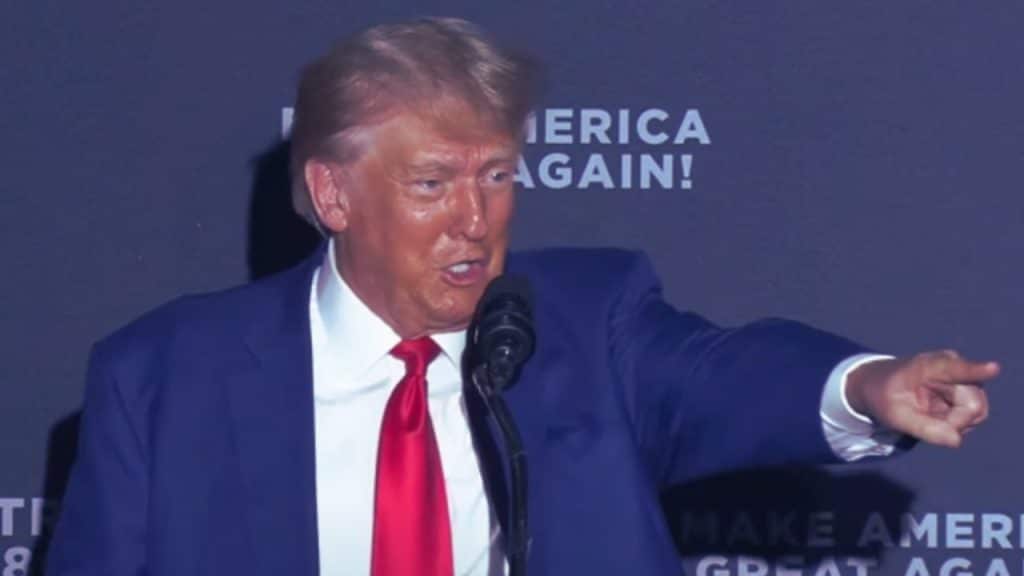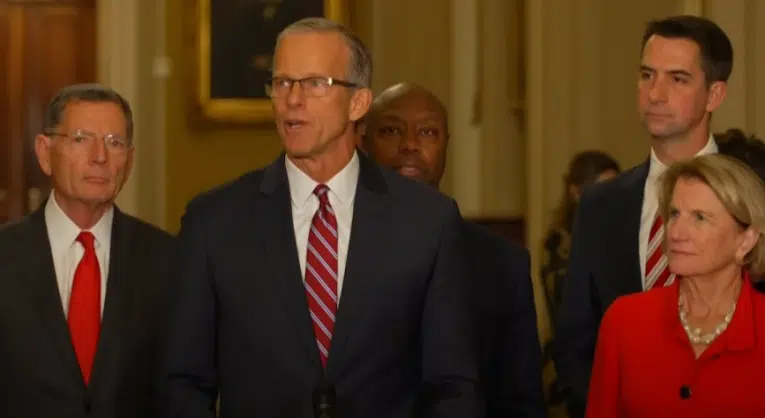
As the 2024 presidential race between Vice President Kamala Harris and former President Donald Trump begins to enter the closing stretch, all eyes are now turned to the Sept. 10 debate between the two candidates, as national polls still show the race to be closely contested both nationally and in the swing states of Pennsylvania, Michigan, Wisconsin, Georgia, Arizona, North Carolina and Nevada.
For example, Harris, who thus far has chosen to run a campaign light on specifics, still trails Trump in the New York Times-Sienna poll taken Sept. 3 to Sept. 6, 48 percent to 47 percent. That’s no better than late July, before the Democratic National Convention in Chicago, Ill., when it was Trump leading 48 percent to 47 percent, and is no better than in April when Trump led Biden 47 percent to 46 percent, underscoring how little the race has changed as Harris has offered little reason for voters to change their opinions.
The truth is, Democrats were in trouble long before the catastrophic June 27 debate between Biden and Trump.
At the debate, Harris might yet wish to shape the election as something of a personality contest between her and Trump, but her challenge remains her need to outline a vision that she wants Congress and her administration to work on. That is something she largely failed to do in Chicago, instead opting for a short speech focused on her personal story, and was otherwise suited for a Vice Presidential challenger nominee to give, attacking Trump and his policies (even though he hasn’t been in office for three and a half years), but offering very few of her own.
Harris might be hoping to run as a blank slate, but the truth is, as the Vice President, she is the incumbent, representing the incumbent party, the Democrats, who have held the White House since 2021 under Biden and Harris. Incumbents are supposed to run on success, not how they would do things differently. And as usual, the election will be a referendum on the incumbent party — regardless of the nominee — and the current state of things.
And Trump will be on the attack.
Harris will have to defend the current economy, which is the product of her administration’s policies and appears to be weakening, with unemployment having increased 1.4 million since Dec. 2022.
That followed a dramatic spike in inflation to 9.1 percent in June 2022 following production not catching up with demand after the Covid lockdowns and a torrent of federal spending that began in Covid but continued her first year in office with the$1.9 trillion so-called American Rescue Plan and another $891 billion of green and other subsidies in the inaptly titled Inflation Reduction Act.
Now we are past peak employment and as the economy overheats, Americans have maxed out their credit cards, and so demand is low. And, prices still have largely not come down.
Food is still up 21.8 percent since Feb. 2021.
Electricity is still up 27.3 percent in that time.
Utility piped gas service is up 29.3 percent during the same period.
Gasoline is up 40.3 percent.
Shelter is up 21.8 percent.
New motor vehicles are up 18.95 percent.
And those were so expensive, demand for used vehicles surged, which are up 13.7 percent.
Moreover, the American dream of home ownership remains elusive and, thanks to all the inflation, interest rates have surged, including 30-year mortgage interest rates, from 2.7 percent in Feb. 2021 to 6.35 percent today. Coupled with the spike in home prices, the cost of a monthly mortgage payment for a recent home purchased has largely doubled.
Overall consumer prices for everything are up 18.9 percent.
The risk for Harris is that, without specifics, she will come across as out of touch and indifferent, but worse, especially if she told voters what she really wants, which is to ultimately restrict energy production even further, driving prices even higher, to make way for green new fantasy.
Making matters worse, and the reason this matters the most, is incomes have not kept up by any measure. Personal incomes, which include government transfer payments from all the printed money, are only up 18.6 percent. Median nominal weekly earnings for wage and salary workers are only up 17 percent.
This rarely happens historically, where wages and incomes don’t keep up with prices, but when it does happen — under Gerald Ford, Jimmy Carter and George H.W. Bush — it has proven to be catastrophic for incumbent parties. The classic historic summation was by Ronald Reagan when he asked at the debate against Carter in 1980, “are you better off than you were 4 years ago?”
The answer was no then, and today it is no again. It’s an incredibly easy case for Trump, who has offered policies including to boost energy production, to make, and it will be one that Harris will have no easy answers for. Harris has not made the sale to the American people, and so that might mean Trump is able to close the deal. Stay tuned.
Robert Romano is the Vice President of Public Policy at Americans for Limited Government Foundation.






